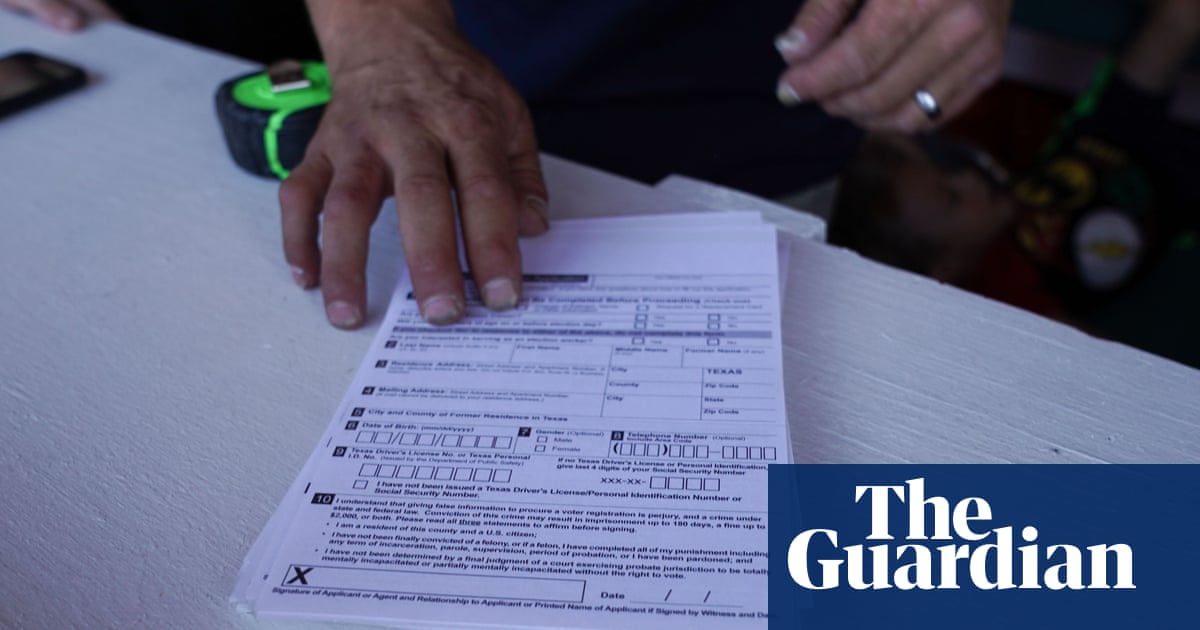A federal judge on Thursday blockedDonald Trump’s efforts to add a proof of citizenship requirement to the federal voter registration form, a change that voting rights advocates warned would have disenfranchised millions of voters.
The president sought to unilaterally add the requirement in a 25 March executive orders. The Democratic party, as well as a slew of civil rights groups, challenged that order, arguing the president does not have the power to set the rules for federal elections.
US district judge Colleen Kollar-Kotelly of the federal district court in Washington, agreed with that argument on Thursday.
“Our Constitution entrusts Congress and the States – not the President – with the authority to regulate federal elections,” she wrote in a 120-page opinion. “No statutory delegation of authority to the Executive Branch permits the President to short-circuit Congress’s deliberative process by executive order.”
Kollar-Kotelly also blocked a portion of the executive order that required federal agencies to assess the citizenship of individuals applying to vote at a public assistance agency before they offered them a chance to vote.
The order would have made it significantly harder to register to vote, even for eligible voters. Nearly 10% of eligible voters lack easy access to documents, such as a US passport or birth certificate, that would be required to prove their citizenship,a 2024 survey found.
Republicans in the US House have passed a similar bill that would require proof of citizenship to vote, but it almost certainly will not pass in the US Senate. Several states have also passed statutesto require proof of citizenship to vote.
Sign up toHeadlines US
Get the most important US headlines and highlights emailed direct to you every morning
after newsletter promotion
Kollar-Kotelly left in place, for now, portions of the order that instructed the Department of Homeland Security to share information with states and to work with the so-called “department of government efficiency” to find non-citizens on the rolls. She also left in place a portion of the order that sought to punish states that allow mail-in ballots to arrive after election day, saying the plaintiffs had not established legal harm. She left the door open to the challengers returning to court later to bring claims against those portions.
